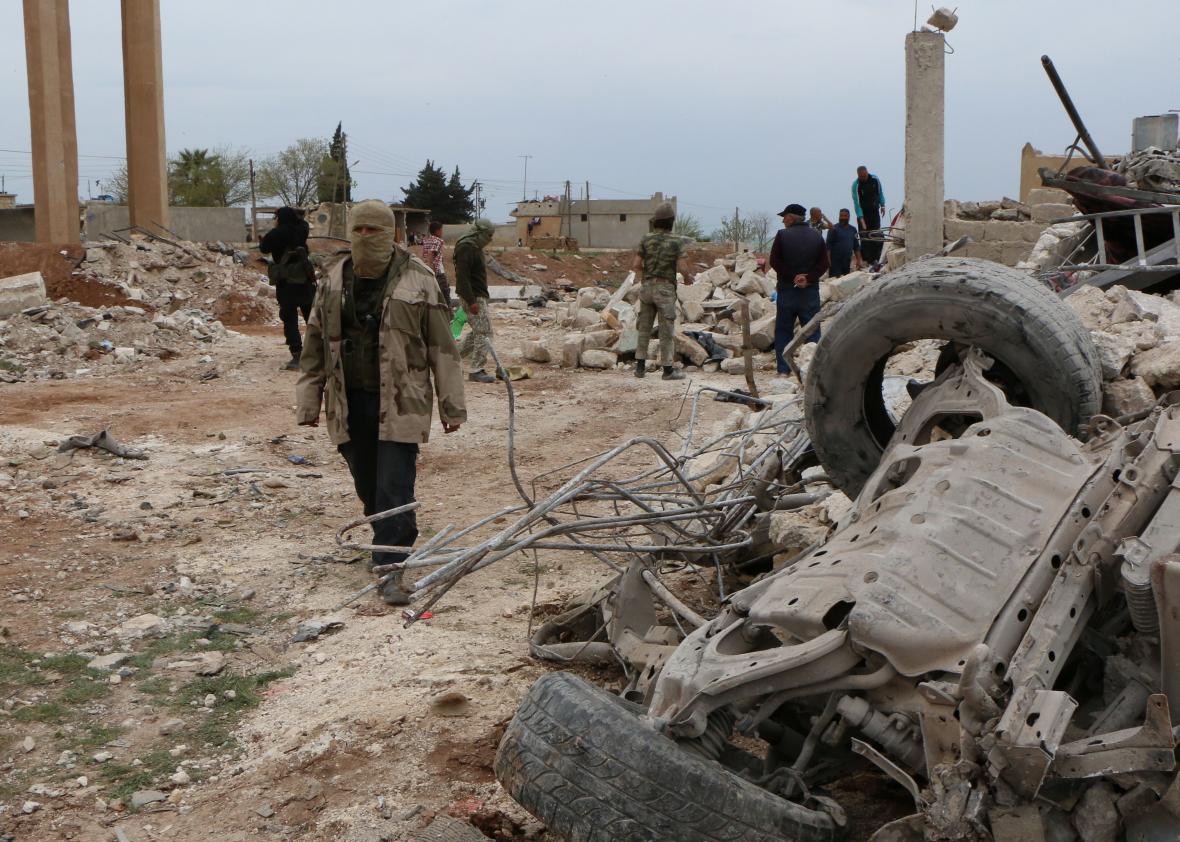More than 16 months ago, the Organization for the Prohibition of Chemical Weapons announced that the last of the Syrian government’s stockpile of chemical weapons had been loaded onto a freighter to be destroyed at sea, bringing an end to a monthslong saga that nearly led to the U.S. launching airstrikes against Syrian president Bashar al-Assad’s regime in the summer of 2013.
But Friday, the Nobel Prize–winning U.N. watchdog organization has concluded “with the utmost confidence” that mustard gas was used in an attack near Aleppo, Syria, in August. The finding, made in a confidential report seen by Reuters, would be the first official confirmation of months of media reporting and speculation by foreign governments that mustard gas is being used by ISIS. The report doesn’t assign blame, but the Islamic State is the likely culprit given that the attack occurred during a skirmish between its fighters and another rebel group in the area. At least two people were exposed and a baby killed by gas in the incident.
The report will be presented to U.N. Secretary-General Ban Ki-moon later this month and a special session of the OPCW’s executive council has been called to discuss the findings. Use of mustard gas, a “Schedule 1” chemical agent, is expressly prohibited by international law, but this is likely to just add one more to the litany of war crimes and crimes against humanity, including genocide, that ISIS has been credibly accused of.
Back in 2013, President Barack Obama famously declared the use of chemical weapons to be a “red line” that would prompt U.S. intervention in Syria, but the war has gone through several iterations since then and the U.S. has already committed special forces troops to ground operations against ISIS, so confirmation of chemical weapons is unlikely to change things much.
The better question is where ISIS got them. While Assad’s forces have been accused of attacking civilians with chlorine gas, a deadly compound that’s hard to police because it also has legitimate civilian uses, the regime has supposedly given up all of its sarin and mustard gas. That means, as a source tells Reuters, either ISIS is making it itself, or that there are still undeclared stockpiles in the country and ISIS has taken over at least one of them. Both of those scenarios are pretty disturbing, even more so when added to this week’s comments by a U.S. intelligence official that the crash of a Russian airliner in Egypt was most likely caused by a bomb planted by ISIS or an ISIS affiliate.
